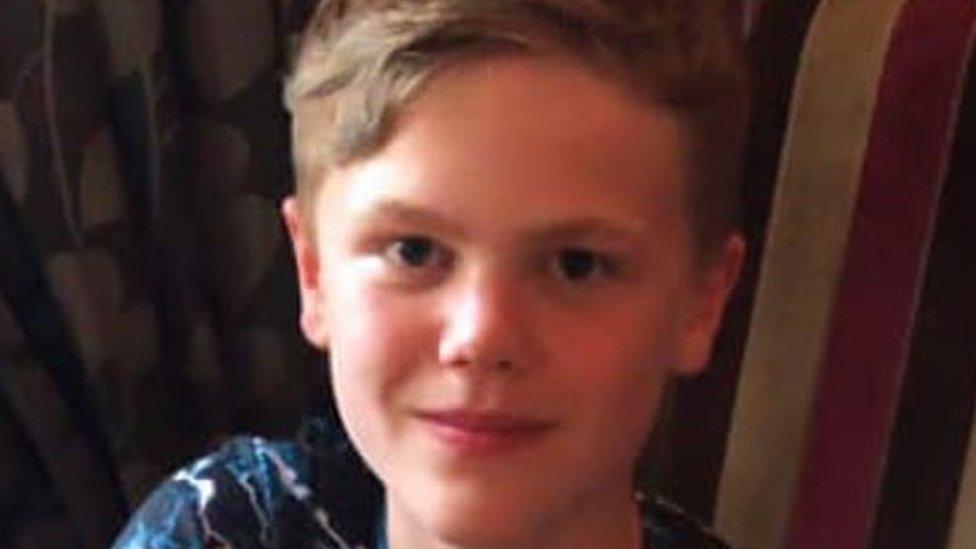Jai Palermo, 13, did not intend to end life - coroner
- Published

An inquest held into the death of Jai Palermo, 13, reached a conclusion of death by misadventure
A teenager who was found dead in a field near his home did not intend to take his own life, a coroner has concluded.
Jai Palermo, 13, from Hook, Pembrokeshire, went missing on 22 January 2020.
He was found dead in the early hours of the following morning by members of the coastguard.
Acting senior coroner Paul Bennett said on Monday he was recording a conclusion of misadventure.
An inquest at Haverfordwest County Court was told Jai had attention deficit hyperactivity disorder (ADHD) and dyspraxia and suffered with sleeping difficulties from the age of six.
Mr Bennett said Jai had made "positive plans" for the future, including spending time with his father and going on a date with his first girlfriend, and was "buoyant and positive" on the morning before his death.
He said Jai's medical records showed no signs of mental health deterioration since 2012, but did cite impulsive behaviour linked to his ADHD on numerous occasions.
'He was unable to understand'
"I cannot be satisfied that he intended to end his life," he said, adding that an argument with his mother earlier in the evening had prompted an emotional reaction and he was "unable to understand the fatal consequences".
"It is my view that Jai felt in some way compelled to take the step he did and he did not have the ability to stop and consider the consequences of what he was doing."
A three-day inquest hearing held in October, which delayed its conclusion to Monday, was told Jai was found at 02:45 on 23 January in a field adjacent to New Road, Hook, following a police and coastguard search.
He disappeared at about 18:30, but his mother and grandmother each believed him to be at the other's home meaning he was not formally reported missing until about 22:00.
His body was found in a field just 245 metres (804ft) from his home and his mother Nia Owen said she was informed by a police officer that her son had taken his own life.
Sefton Kwasnik, the lawyer representing Jai's family, previously said medical evidence had called into question the "cognitive function" and "ability to appreciate and understand" sequences of actions for "someone with Jai's condition".
'Lack of communication'
Mr Kwasnik said it was a "main desire" of Nia Owen that "no other mum, no other parent, no other family member travel the path they did, should have to experience what they experienced".
Mr Bennett said Jai's family were "concerned throughout the inquest to understand how he could not have been found sooner than he was", adding that he "found it unlikely" that resuscitation would have been successful, even if Jai had been found sooner, but "could not be entirely sure".
He added he was "concerned" about "lack of communication" among police officers during the initial search for Jai.
"It seems there were certain assumptions made as to who had searched where... and I am concerned that this might be indicative of a policy or process issue that needs to be addressed," he said.
He gave 14 days for written representations to be submitted on whether a report for prevention of future deaths should be issued.
Related topics
- Published30 October 2023